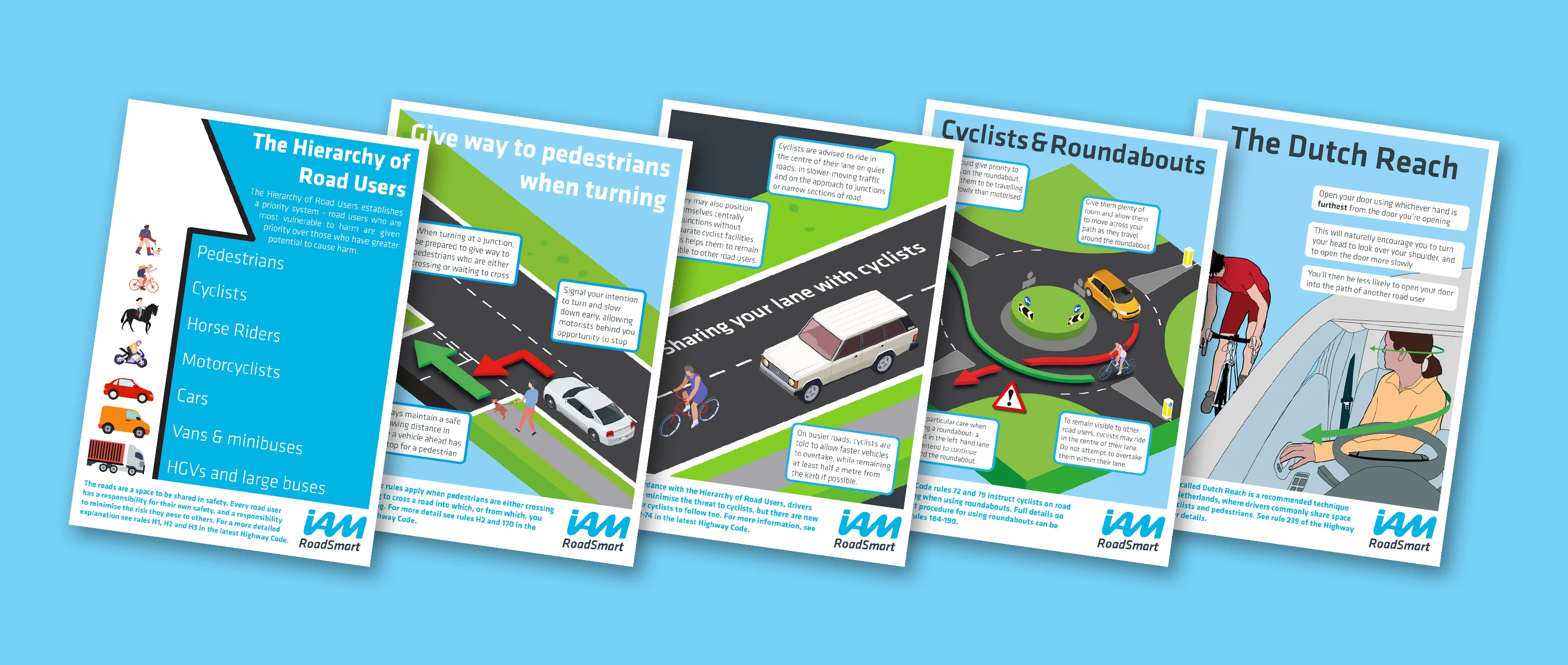
The raft of changes made to the Highway Code in recent months have highlighted the need for drivers to stay informed, and to adapt their behaviour to ensure that they are safe and legal when out on the road. The Hierarchy of Road Users, updates to the laws on mobile phone use, and ongoing developments to the road network such as smart motorways mean drivers put motorists at risk of prosecution if they are unaware of the changes, and present safety concerns for the public if drivers do not modify their approach to various scenarios.
What about employers? Those responsible for fleets or for health and safety must take steps to ensure that the changes are reflected in policy, and that employees who drive for work are made fully aware. This kind of update is often overlooked, sometimes due to the perceived cost of rolling out new procedures, but the true cost may instead be realised through vehicle collisions or injury to people.
In a recent article for IOSH Magazine, our director of policy and research, Neil Greig, highlights why updates to the rules of the road represent an area of workplace change management that is often neglected, with economic concerns taking precedence over safety, sometimes at a high level.

At IAM RoadSmart we would encourage the Government and any other organisation not to forgo safety when tackling economic questions…were this latest proposal to go ahead, it wouldn’t be the first time that road safety considerations have been forced to play second fiddle to economic concerns. Last year saw the scrappage of the test required for towing a trailer of up to 3,500kg…abandoning the trailer test represents the loss of a rare opportunity for drivers to undergo formal post-licence skills development. This will leave an ongoing skills gap affecting drivers in certain job roles, and one that some employers will bear the brunt of through collisions and the associated costs…Sacrificing training and relaxing safety protocols should never be the default option when managing change. It sends a message to workers that their safety is not a priority, and that high standards are optional.
Neil Greig, Director of Policy and Research
Have you examined your business’s policy on mobile phone use when driving, and made any updates as a result of the rule changes that took effect in March? What steps have you taken to check that your drivers have read and acknowledged the recent Highway Code updates? If the MOT intervals were to be extended as recently proposed, what system would you use to ensure that this change is being correctly managed, for both your company vehicles and grey fleet?
If you need help with these challenges, we’re here to provide you with the resources and guidance you need. Over the next two weeks, our team will be at two of the UK’s largest health and safety events. Stop by for a chat and we’ll let you know how we can support you in creating a safer and more efficient business fleet. Click on the links below to register for your free visitor’s pass.




